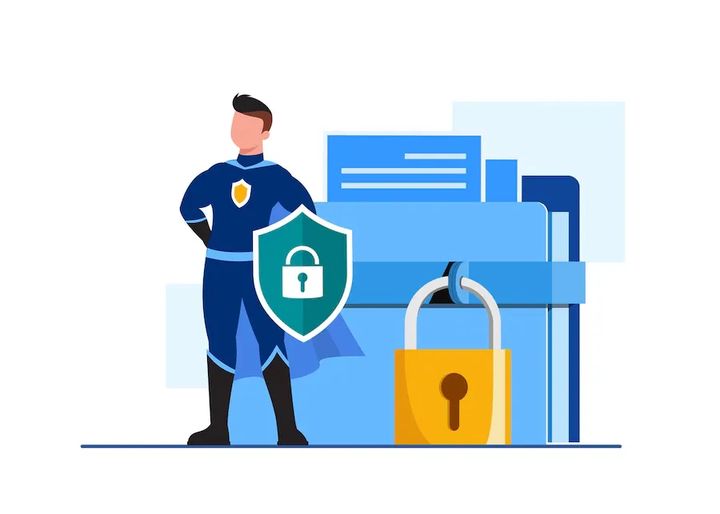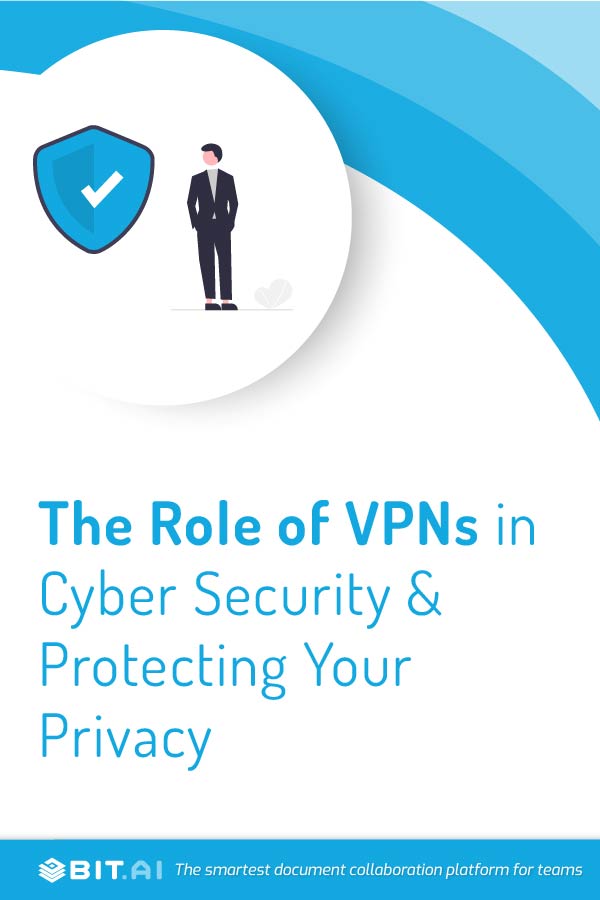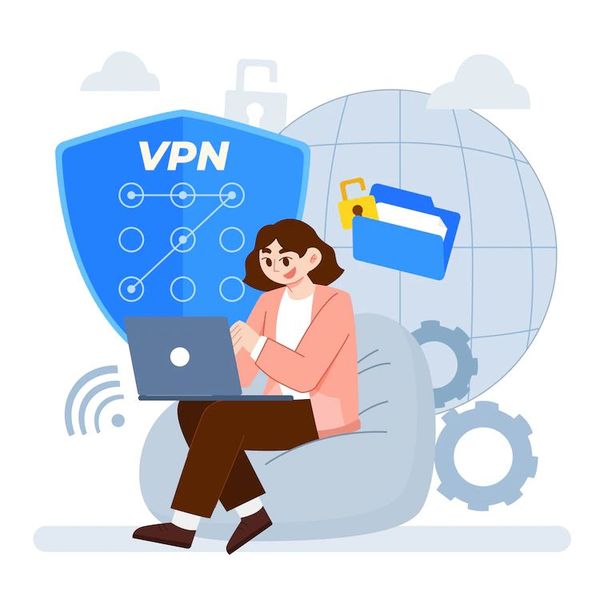The world has turned into a global village – thanks to the internet!
Nowadays, almost every device requires a network connection to work efficiently. While this makes communication more effortless, it also makes different systems vulnerable to different cyber threats.
Luckily you can download VPN to protect your device, and much more! In this article, we will learn exactly how a VPN can deal with the latest cyber threats and keep your device safe from different kinds of issues.
Apart from that, we will also discuss different VPN Tunnels and their architectures to make it easy for you to understand how your connection is secured via a VPN.
So, without wasting any more time, let’s get into it and see how a VPN protects your device and what technologies it uses to maintain security.
Working of a VPN: The Basics!
A Virtual Private Network or VPN is an encrypted tunnel between two devices. It works by encrypting data packets sent over public networks like the Internet.
This encryption is done using special protocols called IPSec (Internet Protocol Security), which secures data traffic. Once the data reaches the destination, it gets decrypted again and forwarded to the intended recipient.
The main purpose of a VPN is to provide users with a private network within a public one. In simple words, it allows users to create a virtual network within another network.
A user can use their own IP address instead of the public one provided by the ISP. Thus, they can access resources only available inside the private network.
The best part about a VPN is that it provides complete anonymity. As mentioned earlier, a VPN creates a virtual network within the public network.
Therefore, when a user connects to the VPN server, all their information is stored on the VPN server itself, and no one can trace back the real identity of the user.
But why do people need a VPN? Well, there are many reasons. Let’s explore them!
Why Do People Need a VPN in First Place? (Benefits)
1. To Bypass Geo-Restrictions
Geo-restrictions are imposed to block access to websites and data from certain cities and even countries.
Thus, if you need to access that particular data, you will need to hide your location first, and a VPN can do that for you without any issue whatsoever.
2. To Unblock Content
You may be restricted from watching certain shows because they are blocked in your region. With a VPN, you can watch them easily.
For example, Netflix, Hulu, and Amazon Prime Video are banned in a lot of places. If you want to access these services, you will need to find a way to unblock them. A VPN can help you out here.
3. To Spoof Your Location
As mentioned above, geo-restrictions are put in place to prevent people from accessing certain websites and data. However, some websites require location information so that they know where exactly you are located.
For instance, Google Maps needs your current location to show you places nearby. Similarly, Facebook also requires this information to display relevant posts.
In order to get around such restrictions, you need to change your location.
You can do that using a VPN. By changing your location, you can trick the website into thinking that you are somewhere else. That way, you can access the required content without any issues.
4. To Improve Internet Speed
Since a VPN makes your connection faster, you can enjoy a better browsing experience.
Connecting to a VPN server creates a tunnel between your device and the VPN server. This means that your traffic passes through the VPN server instead of going directly to the destination site. So, your connection becomes much faster than before.
Second, most VPN providers offer unlimited bandwidth. So, whenever you are connected to their servers, you can download or upload whatever amount of data you want.
Apart from that, it also helps you get rid of the ISP throttling issue. If your internet service provider restricts the connection speed, you can easily escape their clutches.
5. To Evade Malware Attacks
Malware such as viruses, spyware, ransomware, etc., can cause serious damage to your computer. However, a VPN protects your system against such threats, and this is because most of these viruses and malware are designed to target IP addresses.
If you are using a secured connection, then the malware will never be able to detect your connection. As a result, you remain safe from such kinds of attacks.
6. To Hide Online Activity
If you find yourself in a situation where you need an extra layer of privacy, you will need to use a good VPN. When you connect to a VPN, you become anonymous.
Therefore, nobody can track your activities online. Now let’s discuss what protocols are used by different types of Virtual Private Network services.
Read more: Two-factor Authentication: What is it, its Types and Importance!
What Makes a VPN Secure?
A VPN is considered secure if it meets the following criteria:
Encryption: Encryption ensures that no third party can read the data in transit. Therefore, any kind of hacking attempt will fail.
Authentication: Authentication ensures that the user is who they claim to be. In other words, it verifies whether the person accessing the website belongs to the group of authorized users.
Data integrity: Data integrity ensures that the data received at the end is exactly the same as the data sent by the sender.
Confidentiality: Confidentiality ensures that nobody else can access the data except the intended recipient.
VPN Protocols You Need to Know About!
1. PPTP Protocol
PPTP stands for Point-to-Point Tunneling Protocol. Microsoft initially developed it, but it has been replaced by L2TP/IPSec. The main advantage of PPTP over IPSec is that it does not require authentication.
However, it is vulnerable to man-in-the-middle attacks. In other words, hackers can intercept the communication between two users and steal sensitive information.
2. OpenVPN protocol
OpenVPN is one of the best VPN protocols available today. It offers high-security features along with an easy-to-use interface. Moreover, it supports many platforms, including Windows, macOS, Linux, Android, iOS, etc.
It works on TCP/IP network protocol and encrypts all the data which goes across the wire. Hence, it provides complete protection against eavesdropping.
3. IKEv2 Protocol
IKEv2 stands for Internet Key Exchange version 2. It is an extension of the IKEv1 protocol. It uses RSA public-key cryptography for authentication.
IKEv2 is more secure than IKEv1. However, it requires special configuration settings. Also, it is only compatible with certain operating systems. Moreover, it is less efficient than other protocols.
The Role of VPN in Cyber Security in Today’s Age!
The role of VPN in cyber security is very important. Let us understand this with some examples.
1. Protecting Your Identity
If you have a business account on social media websites like Facebook, Twitter, Instagram, etc., you need to protect your identity. If someone hacks into your account, they may change your profile picture, post inappropriate messages, delete your posts, etc.

You should create a strong password and enable two-factor authentication to prevent such incidents. You also need to ensure that you do not share your login credentials with anyone.
Furthermore, you should keep track of all the activities performed through your account. You will know what happened after you logged out from the site.
Read more: Essential Cybersecurity Guidelines to Protect Your Business!
2. Securing Online Transactions
You might want to buy something online using your credit card. If you are worried about the safety of your transaction, you should consider using a VPN service.
When you connect to a VPN server, it acts like a proxy server. So, when you browse the web, your traffic passes through the VPN server instead of directly going to the website. Therefore, the connection becomes encrypted. As a result, your personal information remains safe.
3. Preventing DDoS Attacks
DDoS attacks are conducted to disrupt the normal functioning of a website. The attacker sends massive amounts of requests to the targeted website. These requests consume the bandwidth and resources of the target, and information remains safe.
DDoS attacks are pretty common nowadays. They are used to block legitimate requests made by the users. A VPN can help you avoid such hurdles by easily masking your IP address.
Wrapping Up
In conclusion, you need a virtual private network whenever you use the internet, especially in public places.
Public hotspots such as hotels, cafes, etc., are the most vulnerable areas! There is a higher risk of getting hacked or getting your credit card credentials stolen in such places.
We hope this article has helped you understand the role of VPN protocols in cyber security! Got any queries, questions, or suggestions? Don’t forget to let us know!
Further reads:
7 Shocking Reasons to Use VPN at Work!
Top 9 Virtual Data Room Providers in 2022
Information Security Plan: What is it & How to Create it?

Related posts
About Bit.ai
Bit.ai is the essential next-gen workplace and document collaboration platform. that helps teams share knowledge by connecting any type of digital content. With this intuitive, cloud-based solution, anyone can work visually and collaborate in real-time while creating internal notes, team projects, knowledge bases, client-facing content, and more.
The smartest online Google Docs and Word alternative, Bit.ai is used in over 100 countries by professionals everywhere, from IT teams creating internal documentation and knowledge bases, to sales and marketing teams sharing client materials and client portals.
👉👉Click Here to Check out Bit.ai.




